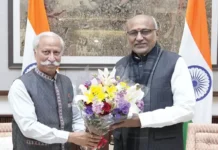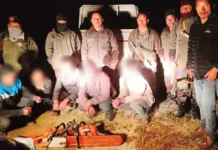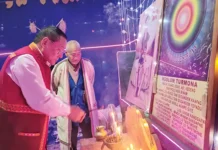Monday Musing
[ Tongam Rina ]
Sometimes people call to enquire if what is printed in the newspaper is true. We don’t exactly print lies, so the easiest way is to quote public figures exactly as they say it. Now, it is for the people to decide whether they want to trust their elected representatives and others in positions of power.
One thing that connects the media and other institutions in today’s world is that the public doesn’t trust any, unfortunately.
And that brings us to the big word: accountability; or rather, the lack of it.
How did we get here?
How did the media quickly descend from a trusted foundation of democracy to a wilted and shaky pillar that is on the verge of collapse? Can we still save media?
Now, who is the media?
Not everyone with a smartphone who uploads the fastest is media. A YouTuber who is able to stitch together information gathered from several printed and spoken sources and eloquently makes a conclusion is not a media person. They are a YouTuber.
Most people in urban areas have a smartphone, which is a great leveller. It breaks barriers, the digital divide.
An individual who makes reels of bad roads or a falling bridge is not media. They are citizens asking for facilities.
What sets media apart from others with a smartphone?
Journalism is about responsibility, ethics, and accountability, and a lot more. Without accountability, there is no responsibility. Without accountability, power grows unchecked. Corruption reaches a point where people in positions of power do not think corruption is illegal.
Citizens become mere citizens, a controlled crowd.
However, media doesn’t function on its own. It reflects the society and the state. If the media is collapsing, our society is collapsing too, our democracy is collapsing too.
In an age where it may appear that media is not needed because everyone can directly interact with one another, give an opinion, and seek justice, it may appear that media has been fast and surely sinking into oblivion. But it may be too premature to write an obituary of media. More than anyone, the state would want the demise of the media, and the current dispensation is more intolerant than ever, who knows how to manipulate using social media, being excellent at it. They manipulate blatantly and indiscriminately using social media and the state radio. In the age of social media, they can interact directly with voters, so what’s the use of even interacting with media? Simple, they don’t want to face uncomfortable questions. So the easiest escape is to connect directly with voters and connect with those reporters who will only report if you toe their line or read their script. This makes their intolerance of accountability even louder and clearer.
Meanwhile, we’re sitting on a landmine of unemployment, underemployment, urban and rural poverty. (This article features an excerpt from the talk delivered by the reporter in the Arunachal Pradesh Legislative Assembly to mark its 50th year.)



